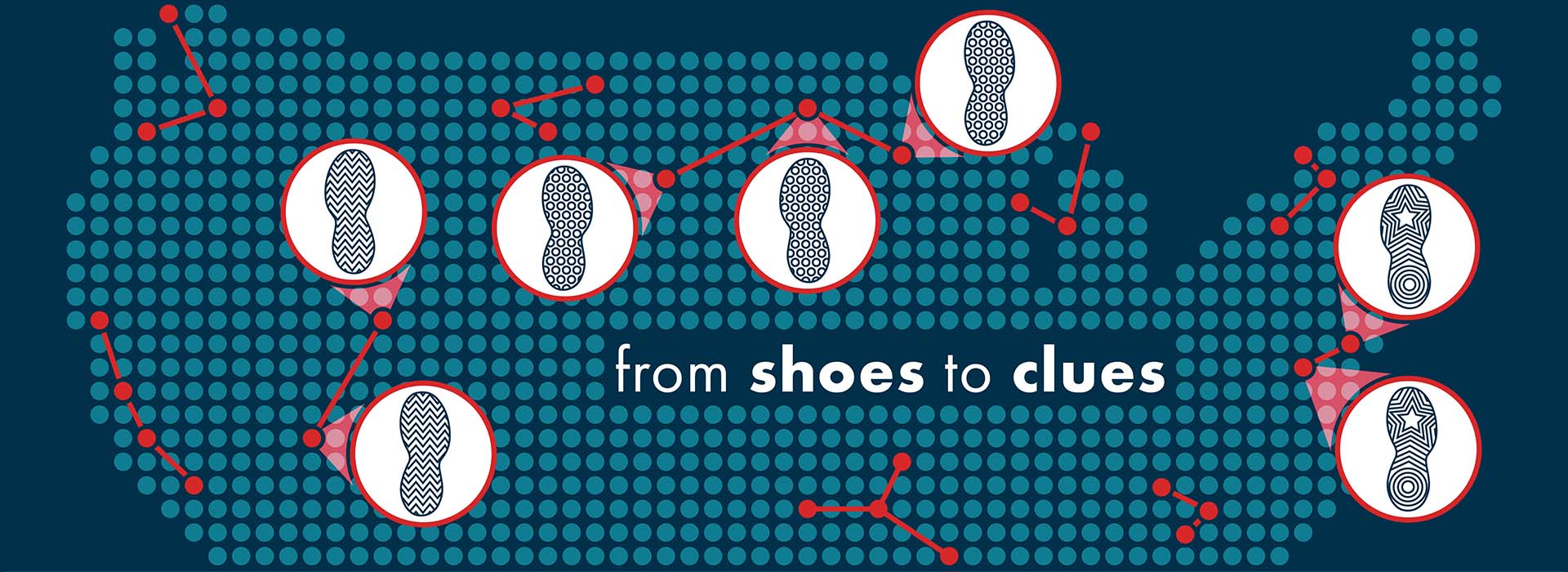This webinar originally occurred on February 15, 2022.
Duration: 1 hour
Overview
Shoeprints at crime scenes, along with suspects’ footwear, are routinely collected and analyzed by qualified examiners in crime laboratories and forensic units to identify, include, or exclude suspects’ shoes as the source of these crime scene impressions. The results of these analyses are provided to investigators and prosecutors, who are considering how to proceed with charges or prosecution with the end goal of case adjudication. For the most part, in the U.S. today, shoeprints and suspects’ footwear are not being cataloged in databases to enable connecting the investigative dots using footwear.
The use of footwear for intelligence is limited to only a make and model of footwear that qualified examiners associated with the source of a crime scene impression. These results aid investigators by focusing their attention when they encounter suspects’ footwear at arrest or during a search warrant. These results cannot generate suspects like DNA and fingerprints, and they do not make it easy for investigators to detect links between scenes using footwear. Given these limitations, there is a gap in U.S. law enforcement’s capabilities to generate actionable footwear intelligence, which is the product of organizing, analyzing, and evaluating footwear data to assist law enforcement in decision making for the purpose of solving crime and preventing future crime.
To address this gap, the National Institute of Justice (NIJ) called on the FBI Laboratory to conduct research to assess whether a national footwear database (NFD) system could be developed and shared across the U.S. law enforcement community. NIJ believes that the development of an NFD could impact law enforcement operations directly by providing a new comprehensive tool to generate intelligence and indirectly through the creation of footwear datasets that researchers could use to develop quantitative methods for applying significance to footwear class characteristics, thus advancing the state of the forensic footwear discipline. NIJ funded the National Footwear Database Evaluation, and the FBI Laboratory executed the feasibility study over a three-year period (approximately from August 2017 to March 2020). Several conclusions and actionable recommendations were generated during that project that were recently reported in the U.S. National Footwear Database System Feasibility Study.
Detailed Learning Objectives
- Attendees will understand how the current state of footwear forensics in the U.S. prevents footwear evidence and information from realizing its intelligence potential.
- Attendees will understand how the implementation of a national footwear database system can transform the future of footwear intelligence in the U.S.
- Attendees will understand how the U.S. can act now by implementing practical steps developed through the National Footwear Database Evaluation that will improve the footwear intelligence capabilities of the U.S.
Presenter
- Brian McVicker, B.S. | Technical Leader and Research and Technology Program Manager for the Footwear and Tire Discipline, FBI Laboratory
Funding for this Forensic Technology Center of Excellence webinar has been provided by the National Institute of Justice, Office of Justice Programs, U.S. Department of Justice.
The opinions, findings, and conclusions or recommendations expressed in this webinar are those of the presenter(s) and do not necessarily reflect those of the U.S. Department of Justice.
Contact us at ForensicCOE@rti.org with any questions and subscribe to our newsletter for notifications.




